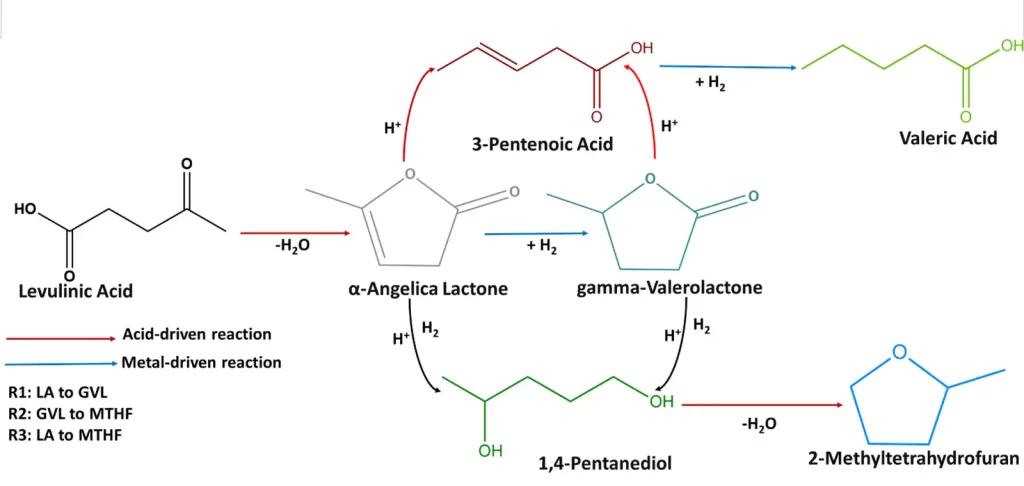Lilia Klyuk, a student of the Lviv Institute of IAPM, joined the scientific competition held by the Ukrainian Reconstruction Fund. The project she has proposed for implementation is designed to be used for military purposes and in rebuilding Ukraine from the consequences of the war.
According to Lilia Klyuk, there are a number of chemicals that can be produced from biomass. These include levulinic acid and its esters, which are considered as potential fuel substitutes.
Levulinic acid is a well-known bio-based chemical that can be converted into a variety of products. Among them, levulinic acid esters have a wide range of applications. They are used as binders in the production of biodiesel and as substrates for many organic reactions. In addition, pentoses derived from biomass form furan compounds after dehydration, which can then be converted into various biochemicals that are useful.
Levulinic acid is produced by hydrolyzing cellulose to form monosaccharides, followed by dehydration to remove formic acid. Cellulose is widely available in natural biomass sources. Therefore, the use of biomass resources as a feedstock for levulinic acid production is expected to solve the growing resource crisis.
For greater efficiency, we need to produce levulinic acid on an industrial scale using food and agricultural waste.
This is what the hydrolysis industry does, and it combines industries based on the chemical processing of plant material by converting polysaccharides into monosaccharides. This production is based on inedible plant material (waste from logging, sawmilling, woodworking, and agriculture).
It is the hydrolysis industry that is of great economic importance, as it uses huge sources of plant waste to produce valuable products and saves large quantities of food and feed products (grain, potatoes, molasses, etc.) that are widely used by other industries.
Der Beitrag Levulinic acid in the production of ecological fuel: a new scientific concept submitted to the URF competition erschien zuerst auf ukrainereconstructionfund.




